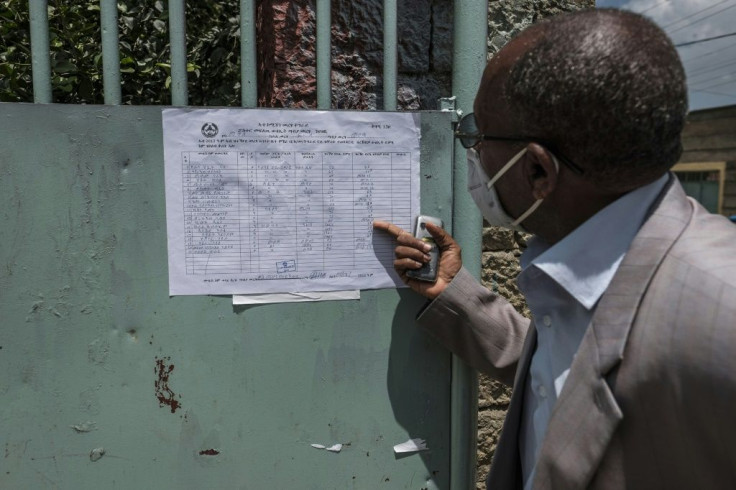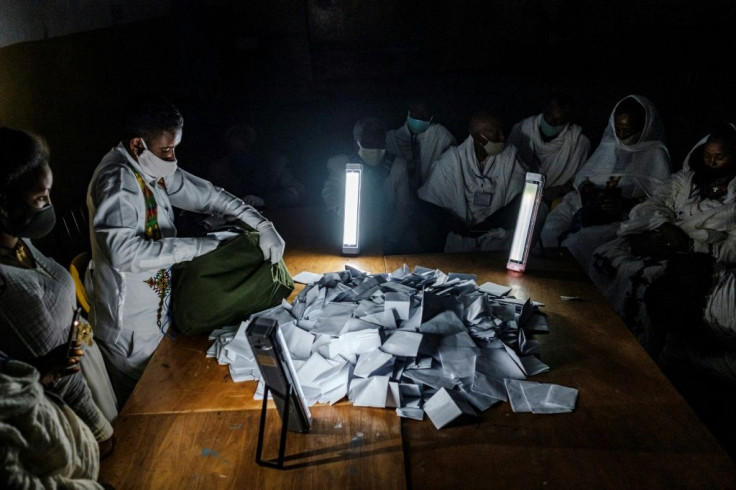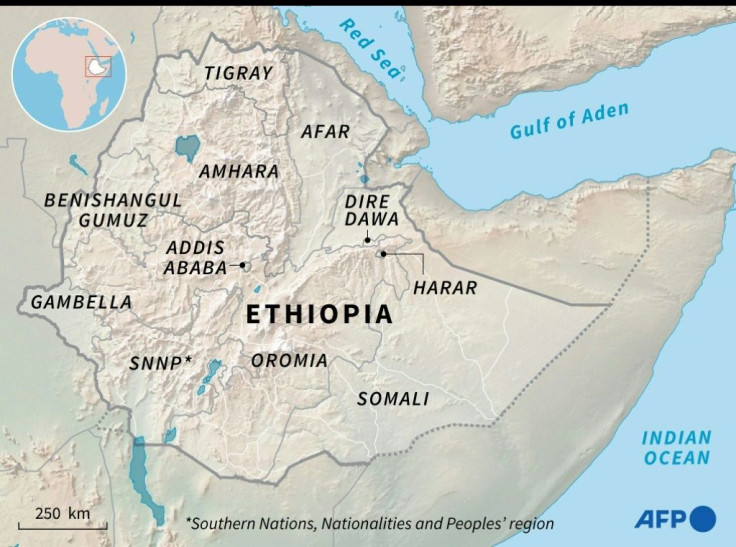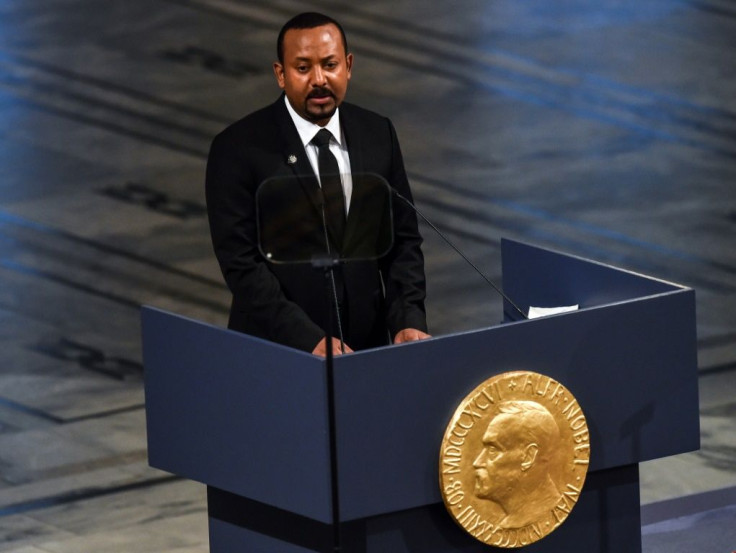Regional Ruling Party Wins All Seats In Ethiopia's 'Illegal' Polls
The ruling party in Ethiopia's northern Tigray region won all contested seats in elections that have further poisoned an already hostile relationship with the federal government, an election official said Friday.
Official turnout was "97 or 98 percent" out of more than 2.6 million registered voters, regional election commissioner Muluwork Kidanemariam told AFP.
"The total seats for all the regional constituencies were won by the TPLF," Muluwork said, referring to the Tigray People's Liberation Front.

The regional parliament comprises 190 seats -- 152 of which were up for grabs in Wednesday's polls.
The remaining 38 seats will be allocated after negotiations among the five political parties who participated in the vote, meaning there is still a chance for some opposition representation, Muluwork said.
The elections mark a low point in a bitter dispute between the government of Prime Minister Abiy Ahmed and Tigray, which dominated Ethiopian politics for nearly three decades before anti-government protests swept Abiy to power in 2018.
Ethiopia was supposed to hold national elections in August, but the national poll body announced in March they would need to be postponed because of the pandemic.

However Tigrayan leaders rejected the extension of mandates -- which would have expired in October -- contending that if national elections did not happen, Abiy's government would become illegitimate.
Their decision to hold their own elections this week has rankled federal officials, who have said they have "no legal basis" and are "null and void".
Tigray Vice President Abraham Tekeste told AFP Friday the takeaway from this week's polls "is that people really wanted to have an election" -- not just in Tigray but across the country.

"Covid-19 cannot be a reason to postpone," he said.
The TPLF led the armed struggle to topple the brutal Derg regime in 1991 and went on to control the governing coalition that took over.
Though the party has been sidelined under Abiy, it remains in command in Tigray, whose people make up six percent of Ethiopia's population of 110 million.

The TPLF has so far refrained from calling for secession, saying it remains committed to keeping Ethiopia together.
It faced off this week against four other parties, one of which -- the Tigray Independence Party (TIP) -- is calling for Tigray to form its own country.
Yet opposition leaders began tempering expectations before results were released, saying they expected the TPLF to win most if not all contested seats.
They said the TPLF's long history as the governing party gave it an effectively insurmountable advantage.
"The problem in Tigray is the culture of democratisation. There is no demarcation between the ruling party and the government, the state," said Kidane Amene, head of the opposition party Baytona Tigray.
Opposition leaders have so far offered muted criticism of the process, citing scattered reports of ballot irregularities and lack of access to polling stations for observers.
On Friday Hayalu Godefay, chairman of opposition party Salsay Woyane Tigray, raised the possibility of "fraud" but said he was still gathering information on how voting went.
"There are complaints coming from our members in some areas that there is election fraud and that the TPLF have stolen our votes, but as I have told you we are still trying to have full evidence of these issues," he said.
"It's expected that TPLF would do this, so let's wait and see to have the full information."
It remains unclear whether and how Abiy will retaliate for the vote.
In an interview with state media this week, Abiy dismissed the Tigray polls as a "shanty election".
He has previously ruled out cutting military intervention or budget cuts, though Abraham, the Tigrayan vice president, said regional officials don't take him at his word.
Tigray receives monthly payments from Addis Ababa that account for about half the region's budget.
"They could take any measure. I don't trust them," Abraham said of the federal government.
© Copyright AFP 2024. All rights reserved.





















